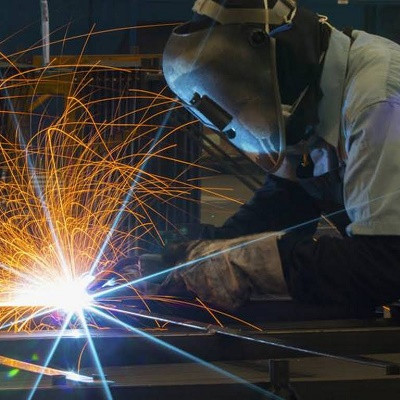
2021-04-26
Visited : 947
Iranian researchers used nanotechnology to produce moisture-resistant alkali electrodes that can not only limit moisture absorption but also cause surface hydrophobicity.
Iranian researchers Majid Pouranouri and Mohammad Reza Pasandeh succeeded in producing moisture-resistant alkali electrodes with the help of nanotechnology.
"The main idea of making this product came from Mohammad Reza Pasandeh, who has a master's degree in materials engineering, and I joined him in the middle of the road, and the output of this cooperation is a product that is ready for industrial production," said Pouranouri, a doctoral and faculty graduate of Sharif University of Technology.
"One of the electrodes used in the welding industry is alkali-coated electrodes, which provide us with the best quality welding properties, but the big challenge of using these electrodes is their very high moisture absorption," he added, noting that the process may cause the welding site to burst after two days;
"In this product, we used a coating of silica nanoparticles on alkaline electrodes, which not only limits the physical absorption of moisture, but also makes the surface hydrophobic," Pouranouri said.
He added that the moisture-resistant electrode has been able to resolve an important industrial challenge.
In a relevant development earlier this month, an Iranian knowledge-based company manufactured Nano-based thermal insulation and protective coating products for the first time in the country, a scientific report said.
Researchers of a knowledge-based company have succeeded to indigenize the production of Nano-based thermal coating products in Iran.
According to the website of the Iran Nanotechnology Innovation Council (INIC), Nano-based thermal insulation coating with excellent adhesion on metal surfaces prevents energy and heat losses, and due to its very low heat transfer coefficient, has high effectiveness in thermal insulation of surfaces.
This coating works not only to reduce temperatures but also provides energy savings, thermal insulation and personnel protection all in an easy spray-on application.
According to the report, currently available in the Iranian domestic markets there are traditional insulation types such as fiberglass, mineral wool, and polyethylene foams that have a completely different composition base and there is no product similar to this company's product in Iran. Meanwhile, this product is also new in the world and is still being developed.
Head of INIC Saeed Sarkar said in February that the country enjoys six percent share of the world nanotechnology production.
“The result of trusting Iran’s talented youths in the field of nanotechnology caused the country to have a six percent share of the production in the global arena,” Sarkar said.
“Supreme Leader of the Islamic Revolution ordered that the budget of INIC should be equal to two percent of investment made by all countries in the field of nanotechnology,” he added.
Read the original article on Fars News Agency.